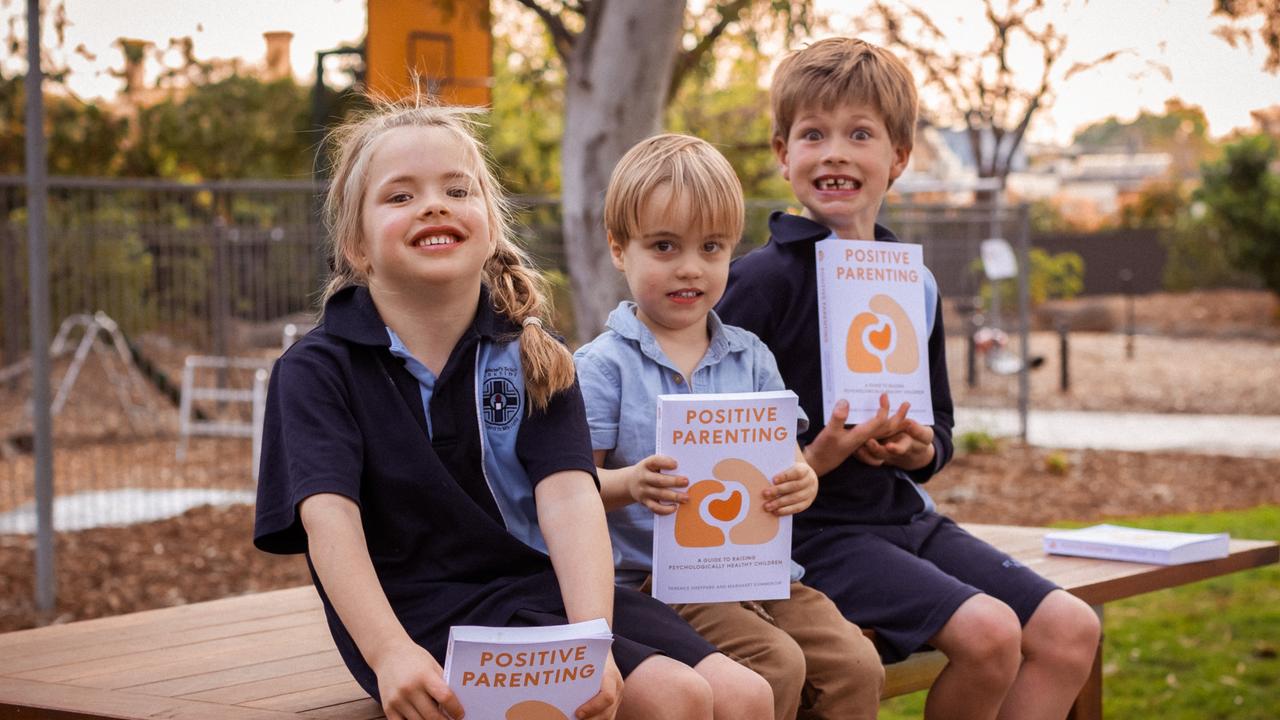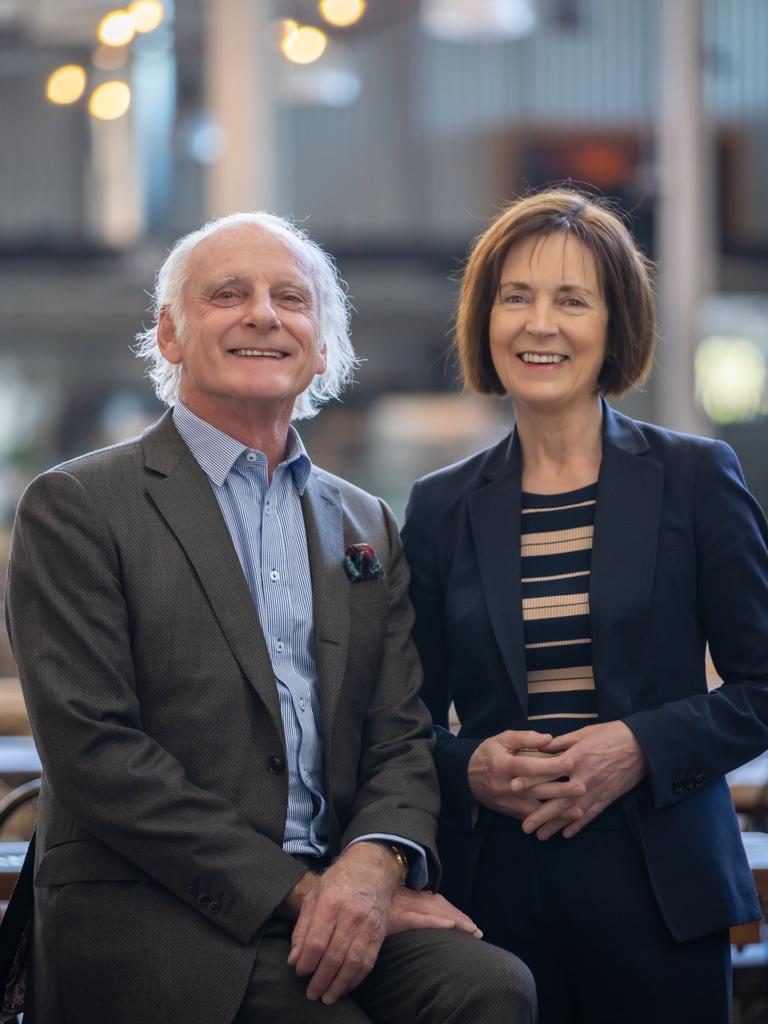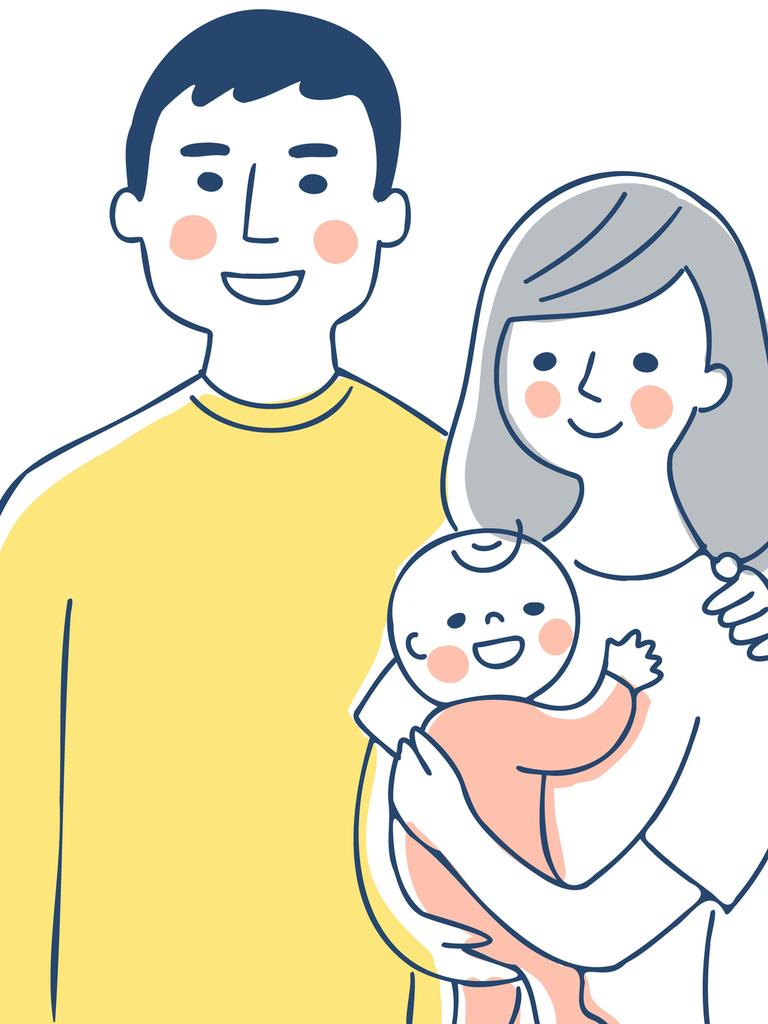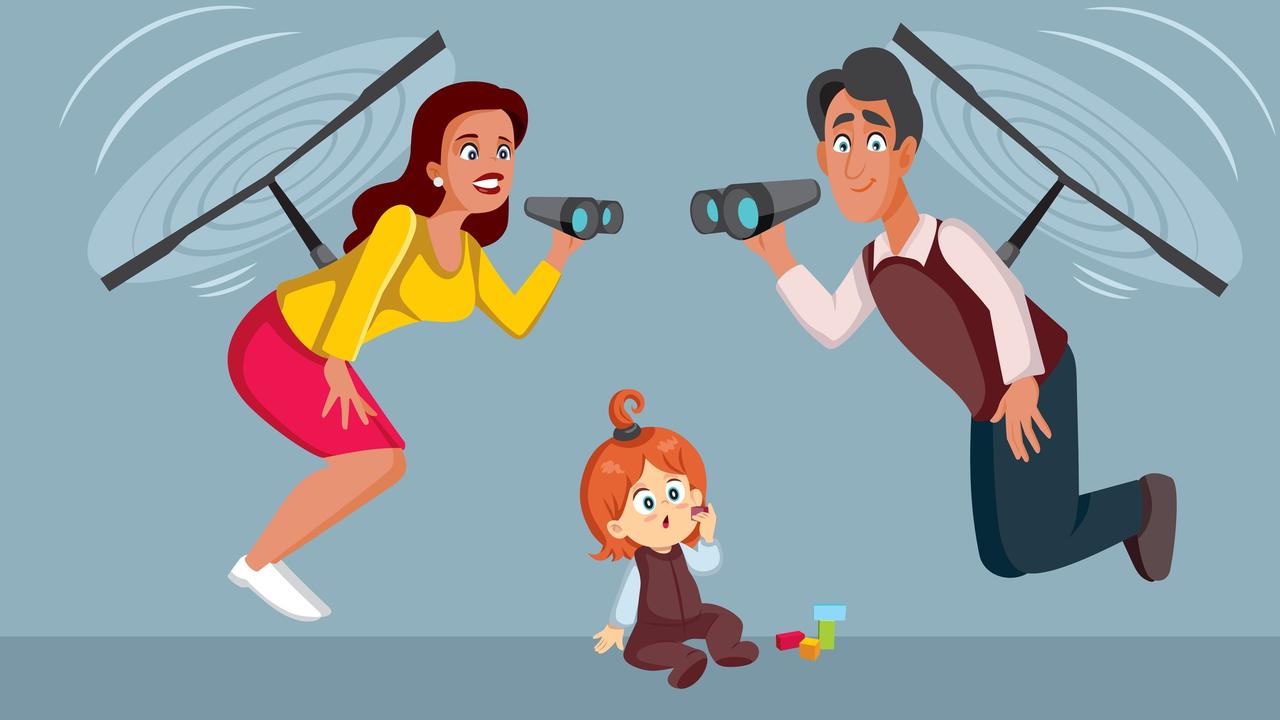Doctors create ultimate parenting manual for modern families
Move over gentle and helicopter parenting, there’s a new childrearing style set to be big for families this year.

What is the job of a parent? Is it to protect our children, hovering above in a helicopter?
Should we push them to succeed, in the style of a tiger mum or dad?
Or are we meant to be their best friend, making the magic and cleaning up afterwards?
These questions plague parents around the country each night as they collapse into bed, having served dinner, supervised homework and tucked sheets under innocent little chins.
There is no shortage of experts or approaches we could turn to for answers; from sleep training and attachment parenting to homeschooling, hands-off or the current vogue of gentle parenting.
Now we can add Positive Parenting to the list.
The concept is the brainchild of Adelaide parents Dr Terence Sheppard and Dr Margaret Kummerow, and the title of a new guidebook they have co-authored.
Married for 38 years, the pair have raised three children to adulthood and spent their careers working with kids: Sheppard, 74, as a pediatric psychologist and Kummerow, 67, a pediatrician.
The culmination of all that experience is a comforting message for the overwhelmed parents of Australia: “We are over-complicating the task of parenting and we are overdoing the amount of energy it really requires.”
When we visit Sheppard at his suburban consulting rooms, he laments that experts and the media (both mainstream and social) have “over-analysed parenting and built it into something more difficult and more challenging than it really is”.
“It feels all too hard but we are making it too hard,” he says.
“What do our kids need to know? They need to know that they’re loved and cherished, that their needs will be attended to, but that it will not be an automatic, immediate process.
“This is what we get wrong: early on we stop with the notion of ‘No’.”

No is a two-letter wordwith a four-letter reputation in parenting these days. As a new mum in 2020 I recall receiving strong messaging from all quarters that saying no to my kids should be a last resort.
“No hitting” was to be replaced with “gentle hands”, and so on.
When I put it to Sheppard that the doctrine of gentle parenting asks us to reason with our children, rather than issue commands, he shoots back with a wry smile: “Have you tried reasoning with a two-year-old?”
When I further explain that pervasive gentle parenting playbook explicitly shuns disciplinary tools like time out, he retorts: “Well good luck with that!”
Setting boundaries, including those that temporarily deprive a child of their parent’s attention, are crucial to making parenting easier, he argues.
“Concern for kids and the way the parenting literature has gone has led too many people to consider that their first priority, all the time, must be this little person and what they want,” he says.
“It is the fear of ‘People will think I’m a bad mother, or a bad parent, if I don’t attend to my child.’ That a good mother or a good father will drop everything at a moment’s notice in order to resolve a child’s needs.
“You see children who are offended, outraged, when their parents aren’t dealing with them immediately. If every single concern or issue is the subject of a United Nations summit in the family, no wonder these kids are so sensitive.
“If you give a child unconditional praise merely for existing on planet Earth you could easily turn them into a narcissist.”
Sheppard warns that if parents reinforce that “inappropriate behaviour” then it “grows and grows until we have pre-teens and teens who are really very unpleasant to be around”.
The key is to start early, he advises.
You can change the behaviour of an eight-year-old, but it’s easier when they’re two.
“Parents need to have the confidence to say: ‘These are our rules. This is what we do in our house. I don’t care what the neighbours do,’” he says.
“It’s about, from the earliest get-go, giving kids responsibility for their own lives.
“A lot of children are not learning life skills at home. We are trying to do too much for them.”


So how does one go about positive parenting?
The approach comes down to the question we started with: What is the job of a parent?
Sheppard and Kummerow – whose two sons and one daughter are now in their 30s and parents themselves – argue the job is to teach children how to live, rather than what to live for.
Put another way, focus on the values children will live by rather than goals we set for them like academic success, sporting skill or a lucrative career.
The pages of Positive Parenting set out 10 “accomplishments of character” for families to work towards.
They are self-confidence, persistence, maturity, grace, respect, emotional control, positive identity, competence, empathy and resilience.
To foster these qualities, readers are urged to look back to a time when children were left to be bored, to figure something out for themselves, to wait their turn to speak. To a time when parents used shock horror, time out.
“Parents will say: ‘If I use time out people will think I’m a bad parent,’” Sheppard reports.
“But time out is not something to inflict on children, it is something they choose for themselves. We agree beforehand and everyone understands the rules. The child controls the process: ‘If you’re not able to do (what is asked) then you will be in time out. You’re in charge here.’
“If they won’t stay in the room, you lock the door, but don’t abandon them.
“Whatever’s going on, we treat our children with respect. If you persist early on, kids are smart, they will work out how to avoid the consequence.”

Another commonly discouraged technique is counting. Anyone who has raised a child has, at some point, found themselves counting pointedly (usually to three) in order to prompt some action.
Sheppard is on board with this tactic but warns: “If you get to three you have to follow through. Kids will take you to the absolute limit, they’ll take you to 2.99.”
And what about unsupervised play? Past generations spent hours wandering the neighbourhood with friends but that’s too dangerous now, we’re often told.
In fact, free play and what Sheppard calls “benign neglect” are crucial to the positive parenting approach.
“Children are natural risk takers,” he says.
“We need to equip our kids to handle uncertainty, to handle failure. If we won’t even let a bunch of kids walk around the block on their own, how are they ever going to get any confidence?”
Parents who are wrapping their kids in cotton wool are “doing their child a major disservice”, Sheppard says, and “they’ve got to get over it”.
“If you truly love your children you will give them that opportunity,” he argues.
The positive parenting approach is to create an environment where the risks are controlled, to an acceptable extent, and age-appropriate, and then to let go.
Sheppard gives examples of children jumping on a backyard trampoline or climbing a playground without a parent hovering.
“Worst case scenario one of them falls off and gets clonked on the head. I’m OK with that,” he says. “That’s how kids build resilience.”
This is really the ultimate aim of positive parenting, according to Sheppard and Kummerow: raising kids who can take the world “in their stride”.
In his day job Sheppard encounters teenagers who are too nervous to start learning to drive and young adults who won’t move out of home.
“We have risk-averse parents who are compounding the problem,” he says. “But when kids take risks they face their fears, and when we face our fears we manage them.
“Children are not born with ready-made life skills, they need to learn. What I’m saying is common sense. It’s not original to me.
“More parents just need to have more confidence to follow what they intuitively know is the right thing.” â–
Positive Parenting: A Guide to Raising Psychologically Healthy Children by Dr Terence Sheppard and Dr Margaret Kummerow positiveparenting.au
More Coverage
Originally published as Doctors create ultimate parenting manual for modern families





